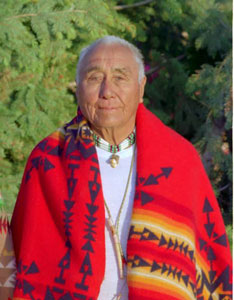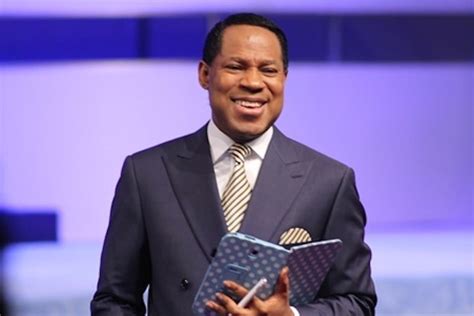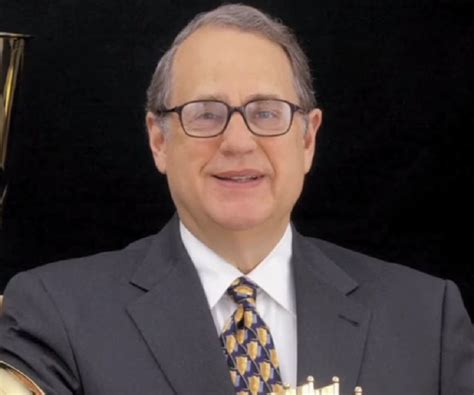A Quote by Thomas Yellowtail
Once you know about these things, you will also love them, because you will see that without a sense of the sacred, you are less than a man.
Related Quotes
A man without the Holy Ghost is a blind man. He may not know it but that's what blindness is all about. A blind man is not just someone who cannot see, he can see alright, but all he sees is darkness. It's the same thing in the realm of the spirit. A blind man in the realm of the spirit is one who doesn't know the things of the spirit, he can't see the things of the Spirit of God. But when the Holy Spirit comes into your life, you will no longer be blind because He will cause you to see what others can't see.
If a [democratic] society displays less brilliance than an aristocracy, there will also be less wretchedness; pleasures will be less outrageous and wellbeing will be shared by all; the sciences will be on a smaller scale but ignorance will be less common; opinions will be less vigorous and habits gentler; you will notice more vices and fewer crimes.
There are six senses: five are outer; they tell you about the world. I say something about the light; without eyes you will not know light. Ears say something about the sound; without ears you will not know anything about the sound. There is a sixth sense, the inner sense, that shows and tells you something about yourself and the ultimate source of things. That sense has to be discovered. Meditation is nothing but the discovery of the inner sense.
The Sentimentalist, roughly speaking, is the man who wants to eat his cake and have it. He has no sense of honor about ideas; he will not see that one must pay for an idea as well as for anything else. He will have them all at once in one wild intellectual harem, no matter how much they quarrel and contradict each other.
I've always believed certain things: You treat everybody nicely because, more than anything, it's the right thing to do. And then you also never know when someone will be in position to help you or hurt you. I know I've gotten help from a lot of people who said good things about me because I treated them well.
So how do we solve this ancient problem? How can we not just tolerate someone who believes differently than we do, but actually respect them for those beliefs? Because nothing less than that will do. It can?t. Simply tolerating someone who believes differently than we do isn?t enough. ?Accepting? them isn?t enough. Having true and abiding peace with them means loving them. And that means respecting them. Because love without respect isn?t real love at all. It?s at best condescending patronization.
Sometimes I will tweet things without an audience in mind at all, just because I want to say something that I don't feel I can say otherwise. Those tweets have a specific sense of desperation to them, because I write them when I feel like I don't have anyone else to talk to - as if Twitter is the only thing that will accept my insanely inappropriate thoughts without judgement.
When you love someone, that love has no limit, no measure, because you know in your deepest being that when that love demands sacrifice, you will give it without question. You will not look for reasons, for justification - the act of giving, of sacrificing, is a natural compulsion, like breathing, and it will, in the end, surprise you because you did it without second thoughts.
The sceptic ultimately undermines democracy (1) because he can see no significance in death and such things of a literal equality; (2) because he introduces different first principles, making debate impossible: and debate is the life of democracy; (3) because the fading of the images of sacred persons leaves a man too prone to be a respecter of earthly persons; (4) because there will be more, not less, respect for human rights if they can be treated as divine rights.
Once you have grace," I said to him, "you are free. Without it, you cannot help doing the things you know you should not do, and that you know you don't really want to do. But once you have grace, you are free. When you are baptized, there is no power in existence that can force you to commit a sin-nothing that will be able to drive you to it against your own conscience. And if you merely will it, you will be free forever, because the strength will be given you, as much as you need, and as often as you ask, and as soon as you ask, and generally long before you ask for it, too.
Until you have a son of your own . . . you will never know the joy, the love beyond feeling that resonates in the heart of a father as he looks upon his son. You will never know the sense of honor that makes a man want to be more than he is and to pass something good and hopeful into the hands of his son. And you will never know the heartbreak of the fathers who are haunted by the personal demons that keep them from being the men they want their sons to be.
If we wait for some people to become agreeable or attractive before we begin to love them, we will never begin. If we are content to give them a cold impersonal 'charity' that is merely a matter of obligation, we will not trouble to understand them or to sympathize with them at all. And in that case we will not really love them, because love implies an efficacious will not only to do good to others exteriorly but also to find some good in them to which we can respond."






























